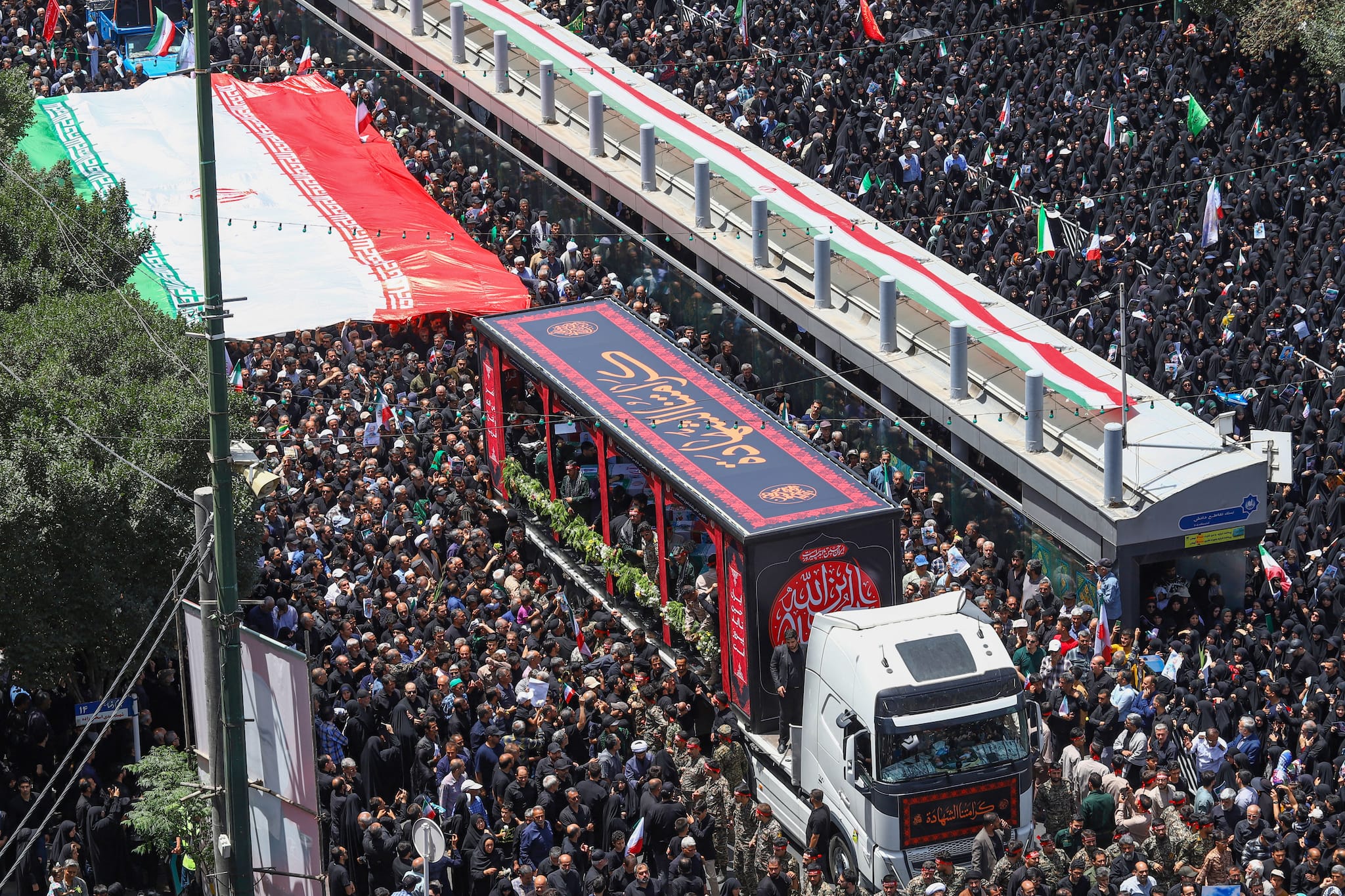Tehran's Solemn Tribute: A State Funeral Marks a Turning Point in the Israel-Iran Conflict

"Tehran's Solemn Tribute: A State Funeral Marks a Turning Point in the Israel-Iran Conflict"
In a poignant display of national mourning, Tehran hosted a state funeral of historic proportions for its esteemed military commanders and scientists who fell victim to the ongoing Israel-Iran conflict. The event, held on June 28, 2025, was not merely a ceremony of remembrance but a powerful statement of resilience and defiance against the backdrop of escalating tensions in the region.
The funeral procession, a tapestry of solemnity and national pride, wound its way through the heart of Tehran. Streets were lined with thousands of mourners, their faces etched with grief and determination, as they paid their respects to the fallen heroes. The air was thick with the scent of incense and the sound of mournful chants, creating a somber yet defiant atmosphere.
Among those honored were top military commanders and scientists, individuals whose contributions to Iran's defense and technological advancements were deemed invaluable. Their deaths, attributed to covert operations allegedly carried out by Israeli forces, have sparked outrage and a renewed call for unity within Iran.
The ceremony was attended by high-ranking officials, including Iranian President Masoud Pezeshkian and other senior government officials. Iran's Supreme Leader Ayatollah Ali Khamenei did not attend the funeral in person, contrary to earlier reports. The eulogies delivered underscored the gravity of the loss and the nation's commitment to continue the fight against perceived aggressors. "Their sacrifice will not be in vain," was a common refrain, resonating through the gathered crowd. "We stand united in our pursuit of justice and peace."
The geopolitical implications of this conflict are profound, with the funeral serving as a stark reminder of the fragile balance of power in the Middle East. The deaths of these key figures have not only intensified the existing animosity between Israel and Iran but have also drawn international attention to the precarious state of affairs in the region.
Analysts suggest that this event could mark a turning point in the conflict, potentially leading to further escalation or, conversely, opening avenues for diplomatic engagement. The international community watches with bated breath, aware that the actions taken in the aftermath of this tragedy could shape the future of Middle Eastern geopolitics.
As the sun set over Tehran, casting long shadows across the city, the funeral procession reached its conclusion. The fallen were laid to rest with full military honors, their graves adorned with the national flag—a symbol of the enduring spirit of a nation determined to rise from the ashes of loss.
In the days to come, the reverberations of this historic funeral will continue to be felt, both within Iran and beyond its borders. It stands as a testament to the complex interplay of grief, politics, and the unyielding quest for sovereignty in a region fraught with conflict.
🔮 Fortellr Predicts
Confidence: 85%
In the aftermath of the Tehran state funeral, immediate reactions within Iran and globally are expected to focus on heightened rhetoric and potential policy shifts. Within Iran, the funeral serves as a catalyst for consolidating political authority around hardline positions, potentially resulting in intensified nationalist sentiment and a public mandate for military retaliation against Israel. The absence of Ayatollah Ali Khamenei may prompt internal speculation about leadership dynamics, influencing decision-making processes. Internationally, the event acts as a flashpoint, drawing sharp responses from Israel and the United States. Israel is likely to bolster its military presence in response to anticipated Iranian actions, while the U.S. may issue statements reaffirming support for Israel and urging regional stability. Markets will respond with increased volatility, particularly in energy sectors, as investors assess risks. Over the next 48 hours, diplomatic channels will be tested as regional actors and international powers, including the EU and Russia, seek to mediate tensions. However, potential for miscommunication or pre-emptive military actions persists. By the 72-hour mark, the geopolitical landscape could see either a move toward de-escalation through backchannel diplomacy or further confrontation, impacting longer-term strategic alignments. Key regional players may reevaluate alliances and defense strategies, while global markets remain sensitive to developments. The overarching system is stressed, with cascading effects on oil prices, military expenditures, and humanitarian concerns.